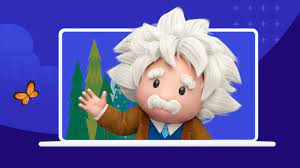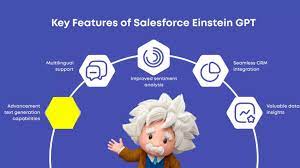Einstein GPT Announced
Salesforce is intensifying its focus on artificial intelligence (AI) with the announcement of a new collaboration with OpenAI and the introduction of the Einstein GPT generative AI service. Read on to learn more about Einstein GPT Announced! Although AI has long been a part of Salesforce’s strategy, with the development of its Einstein AI platform dating back to 2016, the company is now taking a significant step forward with the Einstein GPT service. This service, initially integrated with OpenAI, aims to enable users to automatically generate content, respond to emails, create marketing messages, and produce knowledge base articles, all with the goal of enhancing customer experience. Some of us even refer to this as automagically! According to Salesforce, OpenAI is just the first of several partners that will work with Einstein GPT, though specific details about future partnerships were not disclosed. In conjunction with the Einstein GPT announcement, Salesforce also revealed the establishment of a $250 million fund through Salesforce Ventures to support the startup ecosystem focused on generative AI. Clara Shih, Salesforce’s general manager, emphasized the transformative potential of generative AI for enterprises, highlighting the integration of Einstein GPT across various Salesforce platforms, including Mulesoft, Tableau, and Slack. Einstein GPT operates by leveraging customer data alongside generative AI models. Jayesh Govindarajan, Salesforce’s senior vice president for AI/ML, explained that the service utilizes natural language processing (NLP) components to understand user objectives and assist in executing tasks. He emphasized the importance of fine-tuning the model with layers atop OpenAI’s GPT model, with much of the customization derived from an organization’s proprietary content stored in the Salesforce data cloud. Moreover, Salesforce ensures data privacy and security by allowing organizations to keep their data private within the Salesforce cloud. Einstein GPT’s implementation spans various areas of the Salesforce portfolio, including service, sales, marketing, and development, offering capabilities such as auto-drafting responses for customer service agents, generating summaries for sales updates, dynamically creating content for marketing campaigns, and automatically generating code snippets for developers. The partnership between Salesforce and OpenAI extends beyond the formal announcement, with OpenAI being both a customer and technology provider for Salesforce services like CRM and Slack. Additionally, OpenAI has developed ChatGPT for Slack, allowing users to access ChatGPT directly within the platform for summarizing conversations and receiving writing assistance. Salesforce’s Einstein GPT initiative, in collaboration with OpenAI, represents a significant advancement in leveraging generative AI to redefine customer engagement across enterprises of all sizes and industries. To explore Einstein GPT’s potential for your business, contact Tectonic today. Like1 Related Posts Salesforce OEM AppExchange Expanding its reach beyond CRM, Salesforce.com has launched a new service called AppExchange OEM Edition, aimed at non-CRM service providers. Read more The Salesforce Story In Marc Benioff’s own words How did salesforce.com grow from a start up in a rented apartment into the world’s Read more Salesforce Jigsaw Salesforce.com, a prominent figure in cloud computing, has finalized a deal to acquire Jigsaw, a wiki-style business contact database, for Read more Service Cloud with AI-Driven Intelligence Salesforce Enhances Service Cloud with AI-Driven Intelligence Engine Data science and analytics are rapidly becoming standard features in enterprise applications, Read more





